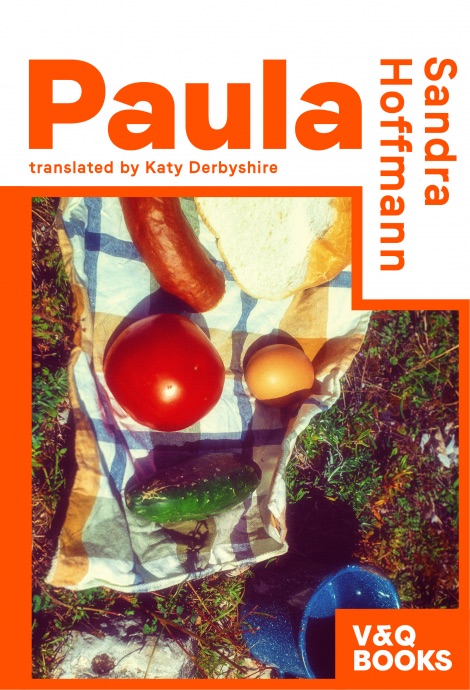
Our third translator’s note is by publisher-translator-blogmistress Katy Derbyshire, who enjoys referring to herself in the third person – another from our very first batch of books. Here, she asks the question: is anything really untranslatable?



The story of Paula’s translation is a long one. I first came across Sandra Hoffmann’s book when it won the Hans Fallada Prize, a German literary award for fiction with a political and social background. The premise of the book fascinated me and I swiftly got hold of it. What a devastating story, so beautifully told!
Sometimes translators read differently to other people. If I find myself trying to translate as I go along, that’s usually a good sign – that I want to take co-ownership of the book, put it into my own words. Here, though, there were two major hurdles. What to do with the Swabian dialect, so integral to the narrator’s emotions. And what on earth to do with the essential word schweigen, a notion that doesn’t exist in such compact form in English and yet crops up in the very first line.
The first step, though, was to invite Sandra Hoffmann to spend a week working with translators at the British Centre for Literary Translation’s summer school in 2018. I effectively passed on the conundrums to a fantastic group of emerging and early-career literary translators, who had five days to think deeply about them with Sandra’s advice and support. That was how the idea came about to retain some of the Swabian in the dialogue. When the groups read their excellent work aloud on the final day, the dialogue worked! And thankfully, having Sandra on hand helped us to decipher the meaning very easily and hear the sound in her own voice.
There followed a search for a UK publisher for a full translation. This has never been my strong point, but in my defence, it is difficult. Presses have restricted budgets and only so many slots, and taste varies wildly. Whatever the case, I didn’t find anyone who shared my massive enthusiasm. Ho hum, another one bites the dust. At least I don’t have to find a solution for schweigen.
Except then I had the idea of setting up an English-language imprint with a German publisher. Having found a sufficiently adventurous press, Voland & Quist, part of our initial conversation was my wish-list. Paula was at the very top of that list.
I’ll skip a bit because this is a translator’s note, not an emerging publisher’s note. Suffice to say, I did now have to find a solution for schweigen. The summer school participants had tackled it and found a very elegant way around it – after much discussion – but I felt I had to start anew and I wasn’t happy with anything I came up with.
I don’t really believe in the concept of ‘untranslatable words’. What we have to do is find ways to explain them or paraphrase them that don’t blow a hole in the original text. Likewise, ‘untranslatable books’ demand creative translations, reworkings, bold steps. Ownership on the part of the translator, if you will. It’s always an implicit part of our work to help readers understand a book’s cultural setting, by choosing words carefully and occasionally making discreet additions – inserting a gloss, to use the technical term. Saint Jerome, the horribly misogynist patron saint of translators, was a great fan of glosses in his biblical translations.
Could I do that in the first sentence? The German is:
Schweigen ist anders als still sein.
Rendered in the words English offers us, the literal translation would be something like:
Silence is different to being silent.
Which doesn’t cut it, does it?
After hours of fiddling with those first six words, and after moving on so I’d at least get started on finding the right voice for Sandra’s book, I returned to the beginning at the end. I came up with a very brief explanation for the word schweigen: ‘deliberately remaining silent’. And I built that into a sentence and a half in the tone I had found for the narrator, right at the beginning of the novel:
We have a word in German: schweigen. It means deliberately remaining silent; it is different to merely being quiet. Or that’s the final version, after workshopping the first page with my ‘translation lab’ in Berlin and after an excellent edit by my esteemed colleague Florian Duijsens. A sentence and a half that took over a year to translate. Sandra was happy with it, I’m happy with it, and I hope you, the reader, perceive it as the right opening to a German book all about deliberate silences.